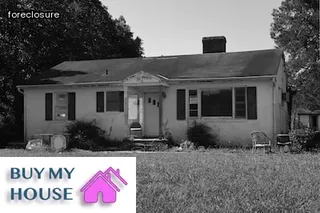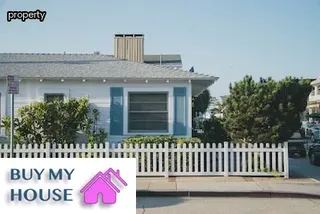Navigating foreclosure and short sale options can be daunting for potential home buyers. Knowing the difference between a short sale and a foreclosure is key to understanding which option is best for a buyer's needs.
A short sale occurs when a lender agrees to accept less than what is owed on a property. On the other hand, in a foreclosure, the lender takes ownership of the property as payment for the loan that is in default.
Both processes are typically lengthy and complex, so it is important for buyers to educate themselves on the pros and cons of each before making any decisions. For instance, foreclosures generally require much more work from buyers such as repairs or renovations while short sales may have fewer upfront costs.
Additionally, buyers should research all fees associated with each type of purchase including closing costs and any other lien payments that may need to be made. Buyers should also consider their credit score when deciding between buying a home through either process as foreclosures can take significantly longer to rebuild credit than short sales.
All in all, understanding the nuances of both foreclosure and short sale options can help buyers make informed decisions when purchasing an affordable home.

When making the decision between a short sale and foreclosure, buyers should consider all of the pros and cons to each option. Foreclosures often come with a lower purchase price than a comparable home sold through a short sale, meaning buyers can get more for their money.
They also have the benefit of being able to inspect a property before buying it since it is usually occupied; however, when dealing with foreclosed properties, there is often a greater risk of title defects, liens, and other issues that could cause costly delays in closing. Short sales may offer more peace of mind since they are typically handled by real estate agents who ensure all paperwork is properly completed and filed.
This can also help save time on negotiating contracts with banks or mortgage lenders. However, short sales often take longer to close due to the additional paperwork required by lenders and may require additional inspections or appraisals prior to closing.
Understanding both options will help buyers make an informed decision when purchasing a new home.
When it comes to understanding the legal implications of both foreclosures and short sales, it is important for buyers to be aware of the differences. Foreclosure occurs when a homeowner defaults on their mortgage loan and their lender reclaims the property in order to recoup the loss.
On the other hand, a short sale is when a homeowner sells their property for less than what is owed on the mortgage loan in order for them to avoid foreclosure. In either case, there are legal implications that must be taken into consideration.
When it comes to foreclosures, lenders may pursue a deficiency judgment against homeowners if they are unable to recover all of the money owed. Short sales can also come with potential legal ramifications such as taxes being due on any amount forgiven by the lender or restrictions placed on future borrowing activities.
It is essential that buyers understand these various legal implications before making any decisions regarding buying a property in foreclosure or through a short sale.

Taking action to avoid foreclosure or short sale is a difficult decision for many buyers. Knowing the difference between these two options and the pros and cons of each can help buyers make the best decision for their situation.
Short sales are when a lender agrees to accept less than what is owed on a mortgage, while foreclosures involve repossessing a home due to missed payments. Short sales can be beneficial because they allow the homeowner to stay in their home until the process is complete and require less paperwork than foreclosures do.
However, they also take longer to process and can have a negative impact on credit scores. Foreclosures can be beneficial as they often result in lower purchase prices, however, they are typically quicker processes and may not offer much flexibility for payment plans or negotiations with lenders.
It's important for buyers to understand that both options will affect their credit score and weigh all of the factors before making a final decision.
When it comes to choosing between a short sale or foreclosure, buyers need to understand how either option will affect their credit history. A short sale is when the lender agrees to accept less than what's owed on the mortgage and forgive the remaining debt.
Foreclosure is when the borrower has defaulted on payments and the lender repossesses and sells their property. Both options have consequences that are negative for a buyer’s credit score and can remain on their credit report for up to seven years.
A short sale can have less of an impact, but the foreclosure process will usually result in more significant damage to a credit score, including lowering it significantly in some cases. When making a decision between these two options buyers should be aware that they may see an increase in interest rates as well as difficulty obtaining new loans or lines of credit if they choose a foreclosure over a short sale.

When deciding between a short sale and foreclosure, buyers should be aware of the potential impact of relocation assistance on their decision. Relocation assistance is a financial incentive offered to homeowners who are willing to vacate their property in order to facilitate a sale.
Though this money is usually provided by the lender for both a short sale and foreclosure, it often takes much longer for foreclosures to receive funding. This delay can be particularly detrimental for those who need the money quickly in order to move out and begin the process of rebuilding their lives.
Furthermore, since lenders may require more documentation from borrowers when processing a foreclosure, there is also added uncertainty as to whether or not relocation assistance will actually be granted at all. By contrast, if buyers opt for a short sale they may have an easier time obtaining relocation assistance due to less paperwork and expedited approval times.
Ultimately, it's important that buyers understand how relocation assistance affects short sales and foreclosures so they can make an informed decision about which option works best for them.
When looking at short sales vs foreclosures, financial considerations are paramount. Short sales involve the sale of a property for less than the amount due on the mortgage, and when the lender agrees to accept this amount, it releases the borrower from any remaining debt.
Foreclosure involves repossessing a property by a lender because of non-payment of mortgage payments and is typically considered to be more detrimental to credit scores. Buyers should examine both options carefully and consider how they will impact their credit report, budget, and long-term financial goals before making a decision.
Additionally, buyers may need to understand how much cash they will need upfront in order to close the sale on either option. They should also factor in closing costs such as inspection fees, title search fees and other associated expenses that can quickly add up.
Lastly, buyers should be aware of potential tax implications when choosing between a short sale or foreclosure as these could have an impact on their bottom line down the road.

When considering purchasing a home, it is important for buyers to understand the differences between foreclosures and short sales. While both involve homeowners who are in pre-foreclosure or financial distress, the process for each is different.
Foreclosures occur when a homeowner fails to make payments on their mortgage and their lender takes possession of the property. A short sale occurs when the homeowner's debt exceeds the value of their house and the lender agrees to accept less than what is owed on the loan.
Buyers must know that foreclosures often require a more complicated process than short sales as lenders must go through foreclosure proceedings in order to take possession of the property. Additionally, buyers must be aware that there may be additional costs associated with purchasing a foreclosure including back taxes, repairs, and legal fees.
Short sales also have associated costs including closing costs, seller concessions, and bank processing fees. Finally, buyers should understand that both types of properties can present great deals but must be aware of potential risks that could come with either purchase.
When considering a real estate purchase, it is essential to understand the differences between a short sale and foreclosure. Even though both involve a distressed property, they can have very different outcomes for the buyer.
A short sale typically involves the seller owing more on their mortgage than what the home is worth, and working with their lender to accept an offer lower than what is owed. In contrast, a foreclosure happens when the homeowner cannot make payments on their mortgage and the lender takes over ownership of the home.
To protect your investment, it is important to evaluate all available options before committing to either of these paths. Researching current market conditions will help you determine if you should pursue a short sale or foreclosure.
Additionally, buyer’s should be aware of any potential risks associated with each option and consult with an experienced real estate agent who can provide guidance throughout the process. Lastly, having a clear understanding of all fees involved in both scenarios can assist in maximizing your return on investment.
Taking these necessary steps before entering into either agreement will ensure that buyers are making an informed decision.

When it comes to avoiding foreclosure, buyers have several different options for exploring alternative solutions. One option is a short sale, which is when a lender agrees to accept less than the remaining balance of a loan.
This can be beneficial for those who are unable to pay their mortgages and are facing foreclosure. Another option is a deed in lieu of foreclosure, where the homeowner transfers ownership of their property back to the lender instead of going through the lengthy process of being evicted.
Both of these options provide an alternative solution to avoiding foreclosure and can help buyers keep their credit intact while also allowing them to move on with their life without fear of losing their property. Additionally, by understanding how short sales and foreclosures work, buyers can make an informed decision about which option is best suited for their particular situation.
When considering buying a home, one of the major decisions involves choosing between a pre-foreclosure, short sale, or foreclosure. While each option presents its own benefits and drawbacks, it is helpful to understand the key differences in order to make an informed decision.
Pre-foreclosures are homes that have not yet been repossessed by the lender. The homeowner is typically behind on payments and must work with their lender to negotiate a solution that can include a loan modification or the sale of the home.
Short sales involve a situation where the homeowner owes more money on their mortgage than what they can sell their home for and must receive approval from their lender for the sale of their home at less than what is owed. Lastly, foreclosure occurs when homeowners cannot keep up with payments and lenders take possession of the property, selling it through auction to recover losses.
When making this important decision, buyers should be aware of market conditions such as inventory levels and prices when weighing which option best suits them and their budget.

When it comes to analyzing the risk vs reward of a pre-foreclosure, short sale, or foreclosure, it is important for buyers to take into consideration multiple factors such as the type of property, current market conditions, and personal financial situation. Pre-foreclosures are typically in better condition than foreclosures because they have been well maintained by their owners, who still live in the home.
Short sales pose less of a risk than foreclosures since they are sold at market value and lenders will often accept less than what is owed. On the other hand, buyers should be aware that short sales can take longer to process and require more paperwork.
Foreclosures offer buyers the chance to purchase homes at lower prices but also carry higher risks due to potential damage caused by previous occupants and unknown liens that may be attached to the property. Ultimately, buyers should carefully weigh all options before making an investment decision in order to best protect their interests.
Banks prefer foreclosure to short sales because of the speed and cost associated with each process. With a foreclosure, the bank can take back ownership of the property faster and with less expense than with a short sale.
Foreclosure also gives banks more control over the sale of the property, as they are able to set the price for which it will be sold. Additionally, banks can use foreclosure to keep more capital in reserve instead of paying out funds to settle a short sale.
While it may seem like banks prefer foreclosure due to its speed and cost advantages, it is important for buyers to understand that this isn't always the case. Banks may accept offers from buyers on foreclosed properties at prices lower than what they would get with a short sale, so buyers should research both options carefully before making an offer on a home.

A short sale is often the preferable option for buyers when compared to a foreclosure. This is because a short sale allows sellers to pay off their debt in full, while a foreclosure leaves them with a deficiency balance they must still pay.
Additionally, the seller's credit score is typically not as adversely impacted by a short sale as it would be by a foreclosure. Furthermore, buyers may find that acquiring a property through a short sale process takes less time than going through the foreclosure process.
The timeline for purchasing a property via short sale can take up to three months, compared to up to six months for foreclosures. Short sales also provide more flexibility for buyers in terms of negotiation and inspection processes.
Finally, buyers may find that properties sold via short sales are often cheaper than those acquired through foreclosures.
A short sale is a real estate transaction in which the seller owes more on their mortgage loan than the current market value of the property. In this situation, the seller may not be able to pay off the entire mortgage loan and must negotiate with their lender for acceptance of a discounted payoff.
Though it can be an attractive option for sellers who are unable to keep up with their mortgage payments, short sales often come with negative consequences. Buyers should understand that a short sale can take longer to close, potentially resulting in higher closing costs and less negotiating power for buyers.
Additionally, a seller’s inability to pay off their mortgage loan reflects poorly on them and could even damage their credit score. Finally, lenders may also require that sellers contribute money out of pocket at closing, which can make a short sale less enticing for buyers.
A short sale is an alternative to foreclosure when a homeowner is facing financial hardship and cannot keep up with their mortgage payments. It allows the homeowner to avoid the damaging credit consequences of foreclosure by allowing them to sell the home for less than what is owed on the loan.
The lender must agree to accept less than full payment and forgive the difference. Short sales are often seen as advantageous for buyers because they may be able to purchase homes at a discounted rate and avoid some of the pitfalls that come with purchasing a foreclosed home.
For those looking to purchase a home, understanding why someone would do a short sale can help them decide which option is right for them.
Sellers often choose to pursue a short sale when they can no longer afford to make payments on their home. A short sale is when a seller sells the home for less than what they owe on their mortgage in order to avoid foreclosure.
In most cases, the lender agrees to accept the lower amount in order to avoid going through the costly and lengthy foreclosure process. By choosing a short sale, sellers are able to avoid damaging their credit score and can potentially save thousands of dollars by avoiding late fees and court costs associated with foreclosure.
Additionally, a short sale allows sellers more time to secure new housing as it usually takes less time than going through the foreclosure process. Furthermore, sellers may be eligible for certain tax incentives that help minimize their financial losses from the transaction.
Ultimately, a short sale provides an exit strategy for those who can no longer afford their home but don’t want to go through foreclosure.
For buyers looking for a new home, a short sale can be a good option if done correctly. Short sales offer buyers the opportunity to purchase a property at below market value from motivated sellers, which can bring significant savings.
However, buyers should be aware of the potential risks and rewards associated with short sales before making any decisions. Buyers need to understand that while they may get their dream home at an attractive price, there is no guarantee that the seller will accept their offer.
Furthermore, it can take months or even years to complete a short sale transaction as banks must approve all offers before closing. In comparison to foreclosures, where the bank has already taken control of the property and is eager to sell quickly, short sales are often more complex and require more patience from buyers.
Ultimately, when comparing short sales vs foreclosures as a buyer you must assess your own needs and budget carefully in order to determine which option is best for you.